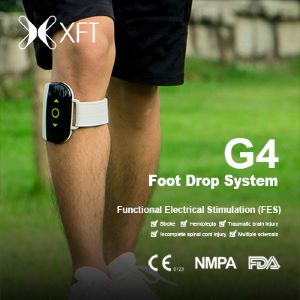Clinical Practice
EFFICACY OF DRY NEEDLING IN DENTISTS WITH NON-SPECIFIC SHOULDER PAIN
Wednesday, November 1, 2023
12:00 PM - 12:06 PM
Location: Station 2
- TP
Tushar Palekar
Principal
Dr D Y Patil Vidyapeeth, Maharashtra, India - SN
Sneha Nemade
Post Graduate
Dr D Y Patil Vidyapeeth, United States
Presenting Author(s)
Non-presenting Author(s)
Research Objectives: 1. To evaluate the efficacy of dry needling for non-specific shoulder pain in dentists.
2. To evaluate the effectiveness of dry needling on the functional activities of dentists with non-specific shoulder pain.
Design: Comparative study
Setting: Tertiary Care Hospital
Participants: 30 Dentists with non-specific shoulder pain between the age group of 20 to 40 years were divided into two groups i.e. the interventional group and the control group.
Interventions: The interventional group was given 3 sessions of dry needling for 2 weeks along with therapeutic exercises. The control group received therapeutic exercises only.
Main Outcome Measures: Numerical pain rating scale
CONSTANT- MURLEY SCORE for pain and function
Results: The result suggests that there was a significant change in both groups post-treatment. But group A (dry needling plus therapeutic exercise) showed more significant improvement than group B (therapeutic exercise) for the Numerical Pain Rating scale for pain and Constant-Murley score. In the intervention group, the mean decrease in the NPRS was 6.067 (SD=0.267) and in the control group, it was 4.133 (SD=0.834). In the intervention group, the mean increase in constant-Murley score was -20.787 (SD=3.320) and in the control group, it was -6.507 (SD=1.764).
Conclusions: This study showed how dry needling along with therapeutic exercise is beneficial in treating non-specific shoulder pain in dentists who use their upper limbs at work for a prolonged period of time. There was a decrease in the pain score and also an improvement in the functional score. In this study both the groups had significant improvement in pain and function but when a between-group comparison was done showed more statistical improvement in dry needling and therapeutic exercise group compared to the exercise group alone. These changes were statistically and clinically significant and can be applied in clinical use for treatment purposes.
Author(s) Disclosures: No conflict of interest
2. To evaluate the effectiveness of dry needling on the functional activities of dentists with non-specific shoulder pain.
Design: Comparative study
Setting: Tertiary Care Hospital
Participants: 30 Dentists with non-specific shoulder pain between the age group of 20 to 40 years were divided into two groups i.e. the interventional group and the control group.
Interventions: The interventional group was given 3 sessions of dry needling for 2 weeks along with therapeutic exercises. The control group received therapeutic exercises only.
Main Outcome Measures: Numerical pain rating scale
CONSTANT- MURLEY SCORE for pain and function
Results: The result suggests that there was a significant change in both groups post-treatment. But group A (dry needling plus therapeutic exercise) showed more significant improvement than group B (therapeutic exercise) for the Numerical Pain Rating scale for pain and Constant-Murley score. In the intervention group, the mean decrease in the NPRS was 6.067 (SD=0.267) and in the control group, it was 4.133 (SD=0.834). In the intervention group, the mean increase in constant-Murley score was -20.787 (SD=3.320) and in the control group, it was -6.507 (SD=1.764).
Conclusions: This study showed how dry needling along with therapeutic exercise is beneficial in treating non-specific shoulder pain in dentists who use their upper limbs at work for a prolonged period of time. There was a decrease in the pain score and also an improvement in the functional score. In this study both the groups had significant improvement in pain and function but when a between-group comparison was done showed more statistical improvement in dry needling and therapeutic exercise group compared to the exercise group alone. These changes were statistically and clinically significant and can be applied in clinical use for treatment purposes.
Author(s) Disclosures: No conflict of interest
Learning Objectives:
- Upon completion, participants will be able to evaluate the efficacy of dry needling for non-specific shoulder pain in dentists
- Upon completion, participants will be able to evaluate the effectiveness of dry needling on the functional activities of dentists with non-specific shoulder pain.
- Upon completion, participants will be able to study the Efficacy of Dry needling on a myofascial trigger points in dentists with non-specific shoulder pain.

.jpg)
